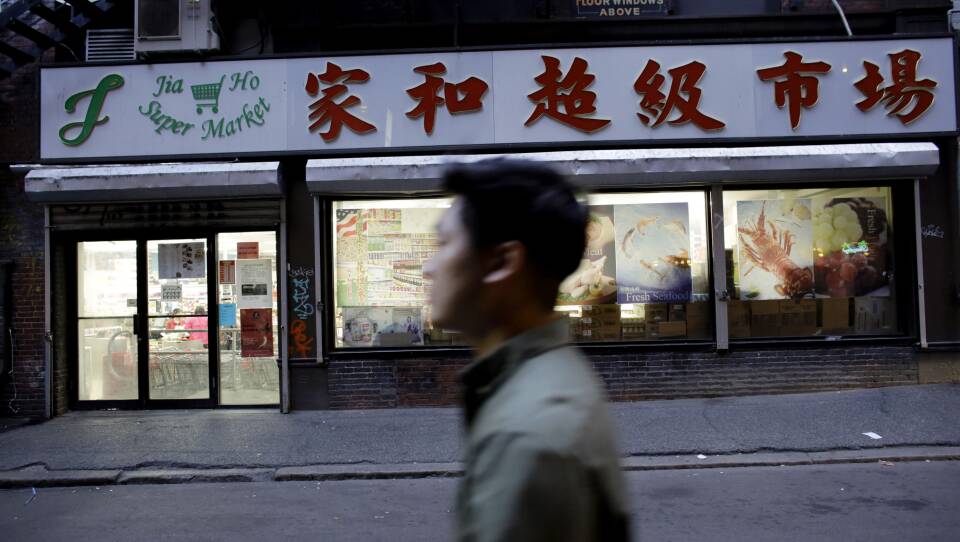Boston's Chinatown has been impacted by the effects of coronavirus for months, with reports of racial discrimination against the Asian community. Misunderstanding about the virus has also led to a dramatic decrease in business in the neighborhood. WGBH Morning Edition host Joe Mathieu spoke with Boston City Councilor Ed Flynn about how he and his staff are trying to help residents and business owners in Chinatown cope as the virus spreads throughout Massachusetts. The transcript has been edited for clarity.
Joe Mathieu: This all started when the Coronavirus was first linked to Wuhan, China. Travel to the country was then banned, and there was a dramatic drop off in business in the neighborhood due largely to uncertainty. This is really when we didn't know anything about it. How's it been going?
Councilor Ed Flynn: It's been a difficult time for Chinatown and [for the] Chinese and Asian community. I've been working on this issue since January when it first appeared.
Mathieu: Before a lot of people heard about it.
Flynn: That's right. And at that time, it almost shut down completely. The businesses in Chinatown were off for a long period of time, like 80 [to] 90 percent. Up until recently, we're also seeing cases of anti-Asian racism and discrimination against the Asian community throughout the country. That's another issue we've been focused on. But also the public health outreach. I'm communicating my message because I have a large Chinese community that speaks mostly Cantonese and Mandarin. I have people on my staff that do speak it, but we're doing a lot of public health outreach to my constituents in Chinatown.
Mathieu: I know you've been spending a lot of time in the neighborhood beyond dim sum brunch [last month]. What does it look and feel like now compared to a month or two ago? Has this been a steady decline or do you think this wave is sort of cresting?
Flynn: The restaurants are still struggling. It improved slightly when we had that dim sum event, but they are struggling. A lot of the workers, if they don't work, they don't get paid. So it's having a devastating impact on a lot of Asian families. [It's] hurting the economy [and] a lot of people. But what's important is we're trying to make sure that all residents have accurate medical information. They also know about the information in their own language and I know the City Public Health Department is working closely with the state public health and the federal government on this crisis.
Mathieu: The confluence of factors here in Chinatown is tough. Obviously, you've got a neighborhood that's becoming, as you and I have discussed, more expensive and difficult to live in. It's difficult to keep a home sometimes in the city of Boston. A lot of these businesses, too, are different than other neighborhoods. They're mom and pops; they don't have a massive savings account to fall back on. Has anyone gone out of business?
Flynn: There are restaurants that are, as I mentioned, down 80 [to] 90 percent. I don't think any of them have officially closed, but they've significantly reduced their hours.
Mathieu: Understood. So you might walk through the neighborhood and it looks closed, which is also bad for business.
Flynn: Right, and especially on the weekends, people love going to Chinatown to enjoy the restaurants and talking to the waiters and the staff as well. Those days are are gone, but hopefully we can bring that back when this crisis ends.
Mathieu: Maybe sooner, which is why we're talking about it. Can the city or state provide financial aid? Is there help beyond information?
Flynn: Yes, the city can provide assistance. The state can provide assistance. We are looking into all options now, especially to help people that are really financially struggling. There should be some unemployment assistance available to a lot of these restaurants, especially for their workers that are not getting paid, making sure that they're able to feed their families. We're also seeing a steep increase in a lot of the food nutritional programs that provide food to families. So there's a lot we can't do, but I'm going to continue to work on making sure that those restaurant workers are eligible for city or state assistance.
Mathieu: That's going to be really important in a minute, if not already. Councilor Flynn, do you want to do any myth busting this morning? People assume a lot of stuff. You think people are flying back and forth, which is not happening. Is that neighborhood any different than any other place in the city when it comes to level of risk?
Flynn: No, it's not. It's a wonderful neighborhood. It's made up of a lot of elderly people that live in Chinatown. The social services are located right in that small little neighborhood. Their family structure is there as well. The grocery store is there. They're wonderful people. They're contributing greatly in our economy, in Boston and our country. And I just have a great deal of respect and admiration for them.
What really bothers me, Joe, is the blatant discrimination that I'm seeing and witnessing impacting the Asian community during these difficult times — a national crisis like this. It's about coming together, it's about treating people with respect, with dignity and empathy, and try to live in someone else's shoes. We have to make sure that we do a better job of reaching out to our immigrant communities across our country.




